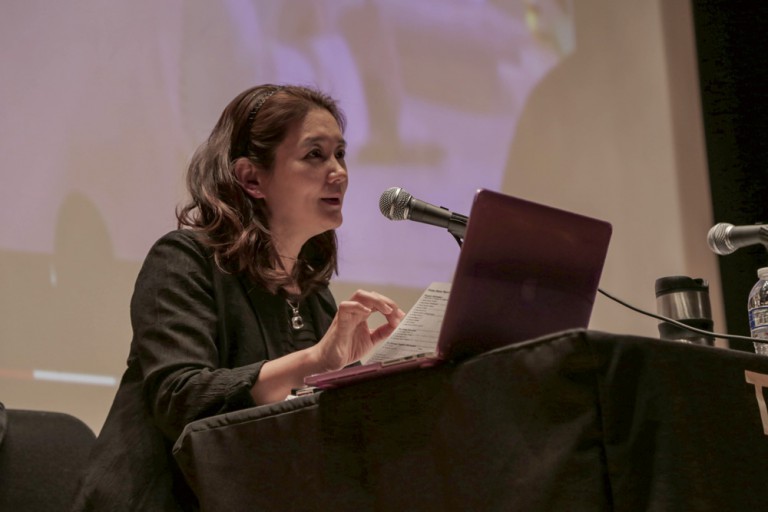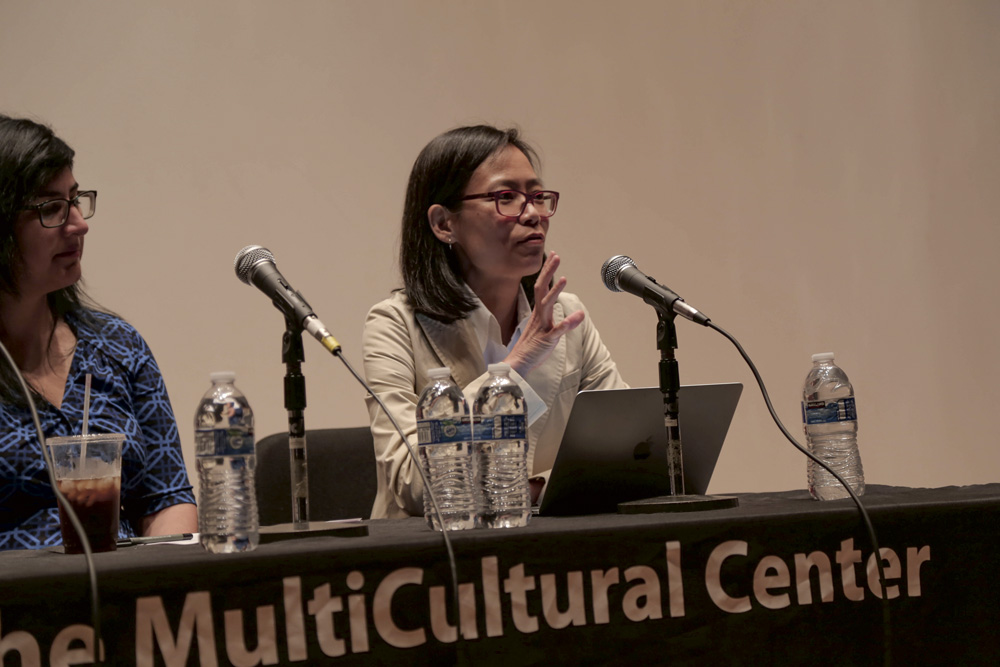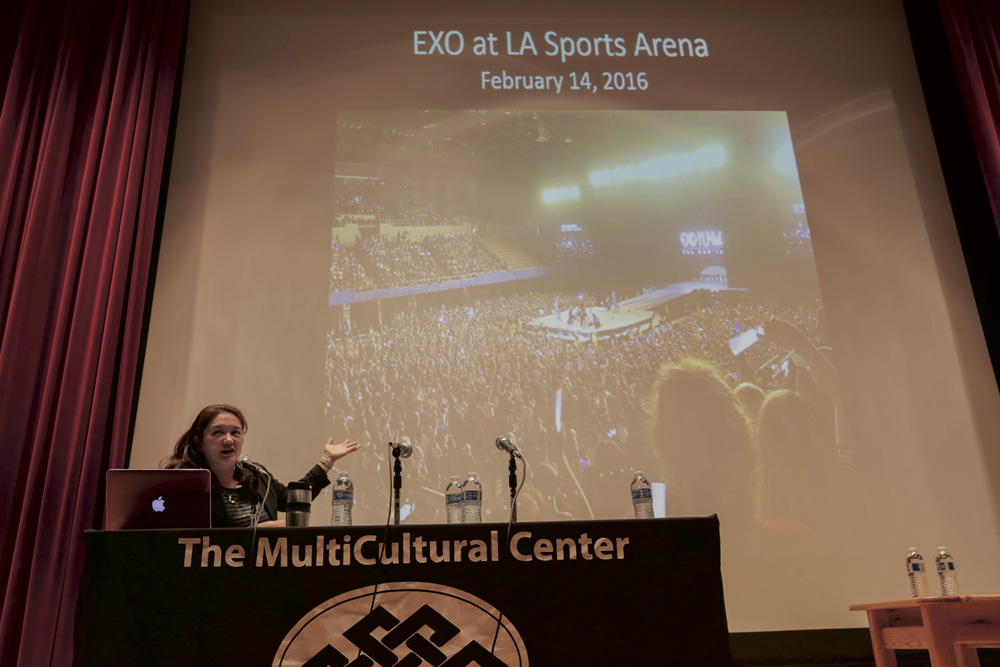
Shanthi Guruswamy
Promotions Director
What do medical deportation, 9/11 and K-Pop all have in common?
University of California, Santa Barbara professors Dr. Lisa Park, Dr. Lalaie Ameeriar and Dr. Suk-Young Kim presented at a panel on Thurs., Feb. 25, during which they explored the answer to this question. Moderated by UCSB sociology professor Kum-Kum Bhavnani, each panelist spoke for 20 minutes on their topic. At the end, they opened up a question-and-answer session to the audience.
The entire talk shared the topic of the surveillance of transnational bodies. To begin, one must understand the definition of the word “transnational” — this adjective describes people who extend across the boundaries of various nation-states (or countries). Transnational people include hyphenated Americans. Each of the three panelists focused on the experiences of Asian-Americans.
Park, a sociology professor, began by speaking on the topic of medical deportation of low-income immigrants. This is the practice of forcibly removing low-income immigrants from a hospital. Despite deportation being unconstitutional, Park stated that it happens to people whose health care costs are quite exorbitant.
“Some of them are undocumented, some are documented and some are even citizens,” Park said.

Through her research, she found that 100 people were deported from one hospital alone in one year. Park’s research focused on private and public hospitals in the four states along the U.S.-Mexico border. These people are being exported to Latin America, despite their actual nationality, because it’s the easiest and quickest option.
An anonymous source Park interviewed claimed that “we are helping him so he can go home and die.”
Park ended her presentation by saying that sometimes, transnational Asian-Americans had an “obligation to this country to pay, and sometimes with your life.”
Ameeriar, a UCSB Asian-American studies professor, then spoke about the state practices that control the movement of Muslim bodies post-9/11. Ameeriar gave the example of Benilda Fernandez, a Christian Indian woman who was detained at Chicago on her return flight from India to Canada.
Fernandez, despite being Indian, has a Portuguese name because of the colonial legacy of Portuguese occupation in India. The border officials didn’t understand this, and resorted to verbally assaulting her, tearing her passport apart and making her pay for her own deportation to India — despite her being a Canadian, not Indian, citizen.
This post-9/11 harassment of “they look Muslim, so she must be the enemy” results in the intertwining of race, skin color and religion. How can a person “look” Muslim when it is possible to convert to Islam? According to Ameeriar, the Muslim body is understood as a “terrorist,” and the terrorist body is understood as orientalist.
Ameeriar said, “There are no terrorizers without victims, and no victims without terrorizers.”

Dr. Kim ended the night with a presentation about the relationship between the stars and fans that characterize the K-Pop music industry. She explored ideas such as why there is so much interest in the live stage, and explained it as a cultural phenomenon with an emphasis on live and multimedia performances.
Kim compared the example of the K-Pop band G Dragon’s “Who You?” music video to the sex workers in Seoul’s red light district. Both examples featured a person in a cage being flocked by various fans. G Dragon was in a glass cage surrounded by screaming fans, while the Seoul sex worker was in a room with men lining up to purchase her services.
The surveillance of bodies is what connected these three discussions. Each speaker’s example discussed the surveyors in a different light, from medical health professionals who deport immigrants to border patrol officers to fans who police the bodies of the K-Pop stars.
The MCC holds such discussions to combat institutional racism and ethnocentrism and promote changes in attitudes and behaviors throughout the campus community.
















